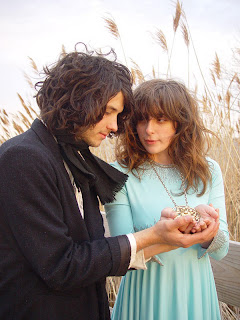A
bit late due to various factors (having to finish 1Q84, writing my own
novel, getting married, being tired) here is the third battle in my
quest to find the best book to grace my eyes in 2012, encompassing all
that I read between July and September. Previously, the grand final has
been reached by Haruki Murakami's The Wind-up Bird Chronicle in the first battle, and Stephen King's The Long Walk in the second.
In
the third quarter of 2012, I read the following books: The Big Sleep,
Love in the Time of Cholera, Oblivion, Boxer Beetle, and 1Q84. Let
battle commence!
It's
a thin field this quarter, partly due to the grotesque obesity of 1Q84
greedily hogging my reading time. The personified 1Q84 of my imagination
lumbers around the arena with its guts spilling over the nappy that is
its only clothing, slow and confused, yet showing flashes of pugilistic
brilliance, much like a young Audley Harrison. Its wild attacks luckily
catch Love in the Time of Cholera in the chops as it's delivering a
200-page soliloquy on love and knock it to the floor, at which 1Q84
tires and drops arse first onto Cholera's face, suffocating it. I was
really disappointed with Love in the Time of Cholera after expecting
great things from it and hearing so much about the author, Gabriel
Garcia Marquez. I expected a Latin American magical realism tour de
force, but all I got was turgid and overlong musings. I found it an
absolute chore to get through. And now it's dead. 1Q84 staggers to its
feet, but seduced at the prospect of food to gorge and sustain its
spiraling word count, it picks up a beetle casually dropped by Boxer
Beetle, only to find that it's a super strength hardcore Nazi beetle,
that sticks in its throat and eats it alive from the inside. 1Q84 was
another book that I found disappointing: some of it is very good, and
through the first two books I enjoyed it and looked forward to finding
out what would happen, but the third book seems an unnecessary addition
to the tale, and feels as if Murakami was bowing to pressure to continue
the story rather than writing it to find out himself what happened. The
story is caught between fantasy and realism, neither one nor the other,
and not enough of either to be truly satisfying. I still liked it, but
when you've read a book as good as The Wind-up Bird Chronicle a few
months before, anything will struggle to match that masterpiece. Boxer
Beetle stands over the corpse and malevolently chuckles, and is still
grinning as it collapses to the floor, a bullet hole showing daylight
through to a smoking gun held by The Big Sleep. Boxer Beetle, the
interesting debut by Ned Beauman, I picked up on a whim after finding
out that he's around my age and wanting to see how he writes, and I
wasn't disappointed. Unfortunately, the competition here is just too
strong for it, but I think in the future Beauman may write some truly
great novels.
That
leaves us with two books duking it out for the heavyweight title:
Raymond Chandler's detective noir The Big Sleep, and David Foster
Wallace's short story collection Oblivion. It's tough to choose between
them. Wallace's stories showed me a way of writing that I didn't know
was possible, treating words like water and trickling them onto the page
in wonderful mixed up ways, and infusing the beauty of his
story-telling with a dry scientific style that when I write about I
always think sounds terrible but knocks me down with majesty when I read
him. The first story in Oblivion, Mister Squishy, about a focus group
studying a cake, is one of the best fifty pages I've ever read. The Big
Sleep, meanwhile, provides a blueprint for every great crime novel of
the post-war era, and displays an understated greatness in the writing
as its protagonist stumbles from clue to clue to solve a mystery. Just
writing this, I've changed my mind four times about which book should
win, and as the two foes stand in the centre of the ring trading blow
for blow I still can't work it out. Eventually, (after leaving this post
for half an hour and coming back to find them still barely raising
their skinned and bloodied fists, their legs turned to jelly, their
pages crinkled and print running with sweat) Oblivion launches one last
fevered assault of perspicacity and The Big Sleep falls into a heap on
the floor, pulped.
The best book I read between July and September is: Oblivion. Hip hip hooray!


























